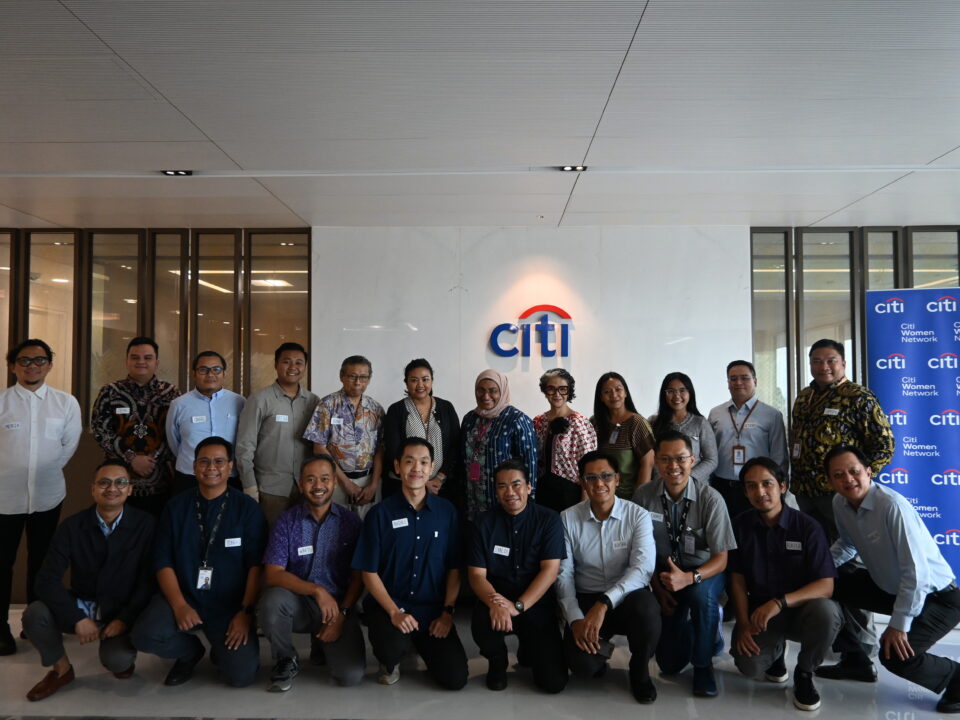
Lelaki Turut Serta – Coffee Chat #4
September 12, 2024
APINDO and IBCWE pledge to support childcare to boost productivity and achieve SDGs
October 31, 2024Indonesia must significantly increase female labor force participation to achieve high-income status. A 2024 World Bank report found that female labor force participation has remained stagnant for the past two decades, about 30% lower than that of men.
Working women, especially those who are married and have children, often face the challenge of balancing work and family responsibilities, which can lead to them leaving the workforce.
This dual role impacts the productivity of the workforce, especially women who have become parents. Research by Prospera and the University of Indonesia’s Demography Institute (2023) shows that many women of productive age have limited opportunities for effective work.
This is because they spend more time on unpaid care and domestic work. In the long run, this condition impacts career progression, making it a major cause of the low number of women in leadership positions.
So, what can be done to increase women’s labor force participation?
We propose that companies adopt employer-supported childcare (ESC) to empower working parents. ESC can help employees balance their work and family responsibilities, leading to increased productivity and job satisfaction. ESC also presents a strategic opportunity for companies to contribute to building a sustainable care economy. There are various childcare support models that companies can consider, including:
- Permanent on-site or near-site childcare (prioritizing child safety) provides employees with closer and more reliable access to their children daily.
- Temporary on-site or near-site childcare (prioritizing child safety) can be a short-term or emergency solution, as well as for specific days like school holidays or public holidays. Companies can provide seasonal childcare facilities for employees who need extra support.
- Childcare subsidies or concessions can reduce financial burdens for employees and encourage them to remain in the workforce.
- Referral services can provide a directory of trusted childcare providers to help employees find options that suit their needs
- Flexible work arrangements (such as work from home or parental leave) can help employees balance professional and personal responsibilities.
Implementing these models has proven to have a positive impact on productivity, job satisfaction, and employee retention. A study conducted by the International Finance Corporation (IFC) in 2017 showed that companies implementing ESC have successfully reduced employee turnover.
For example, in Japan, a major banking company managed to increase retention rates for new mothers. They also saved millions of dollars after providing childcare facilities and longer maternity leave.
In addition to supporting business productivity, ESC programs are also aligned with achieving the Sustainable Development Goals (SDGs), particularly SDG 5 on gender equality and SDG 8 on decent work and economic growth.
By encouraging women’s participation in the workforce, companies are not only creating more inclusive and productive work environments but also empowering women’s economies, ultimately boosting economic growth.
However, the implementation of ESC in Indonesia still faces challenges, such as a lack of understanding and consistent policy support. Collaboration between the public and private sectors is essential to build a stronger care ecosystem.
The government has taken significant steps with the enactment of Law Number 4 of 2024 on the Welfare of Mothers and Children in the First Thousand Days of Life, which guarantees working women’s rights to childcare facilities. Additionally, the government has launched the National Care Economy Roadmap as a strategic guide to strengthen the care ecosystem.
However, to ensure effective implementation of this policy, appropriate implementing regulations from the government are needed. Active involvement from the private sector is also crucial, taking into account the different conditions in each company, to accelerate the provision of childcare solutions that support work-life balance.
Support for ESC is not only a strategic step for businesses but also part of corporate social responsibility in creating inclusive and sustainable economic growth. By supporting childcare, companies can improve employee well-being, reduce turnover, and create a better work environment.
This article has been published on Katadata.co.id under the title “Riesta Aldila: Peran Perusahaan Mendongkrak Produktivitas Pekerja Perempuan”, https://katadata.co.id/indepth/opini/671b219db1156/peran-perusahaan-mendongkrak-produktivitas-pekerja-perempuan
Writer: Riesta Aldila | Editor: Aria W. Yudhistira




